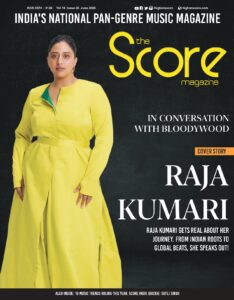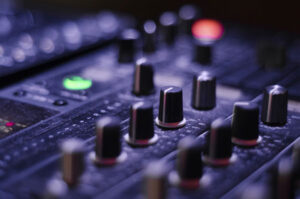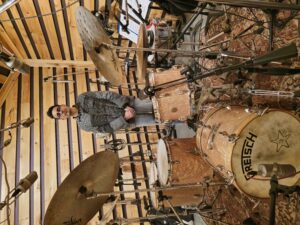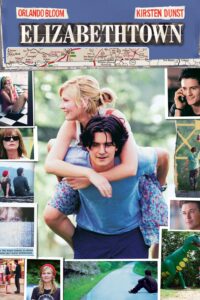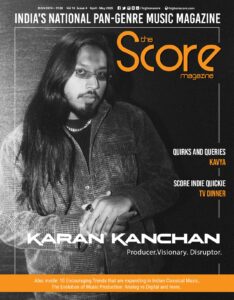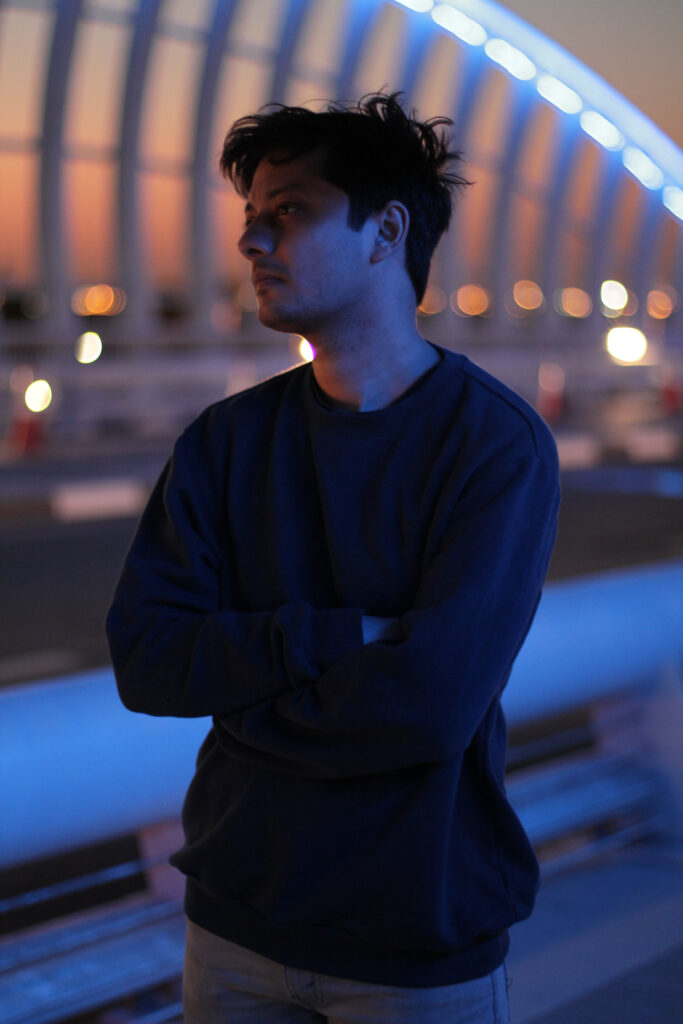Step into the world of Mumbai-based singer-songwriter Tejas as he takes us on an emotive journey through his latest EP, “Museum.” Delving into themes of loss, redemption, and self-discovery, Tejas invites us to explore the intricate layers of his music, crafted with a unique blend of Indian folk aesthetics and progressive pop sensibilities.
Join us as we unravel the stories behind the music and discover the profound emotional resonance of “Museum.
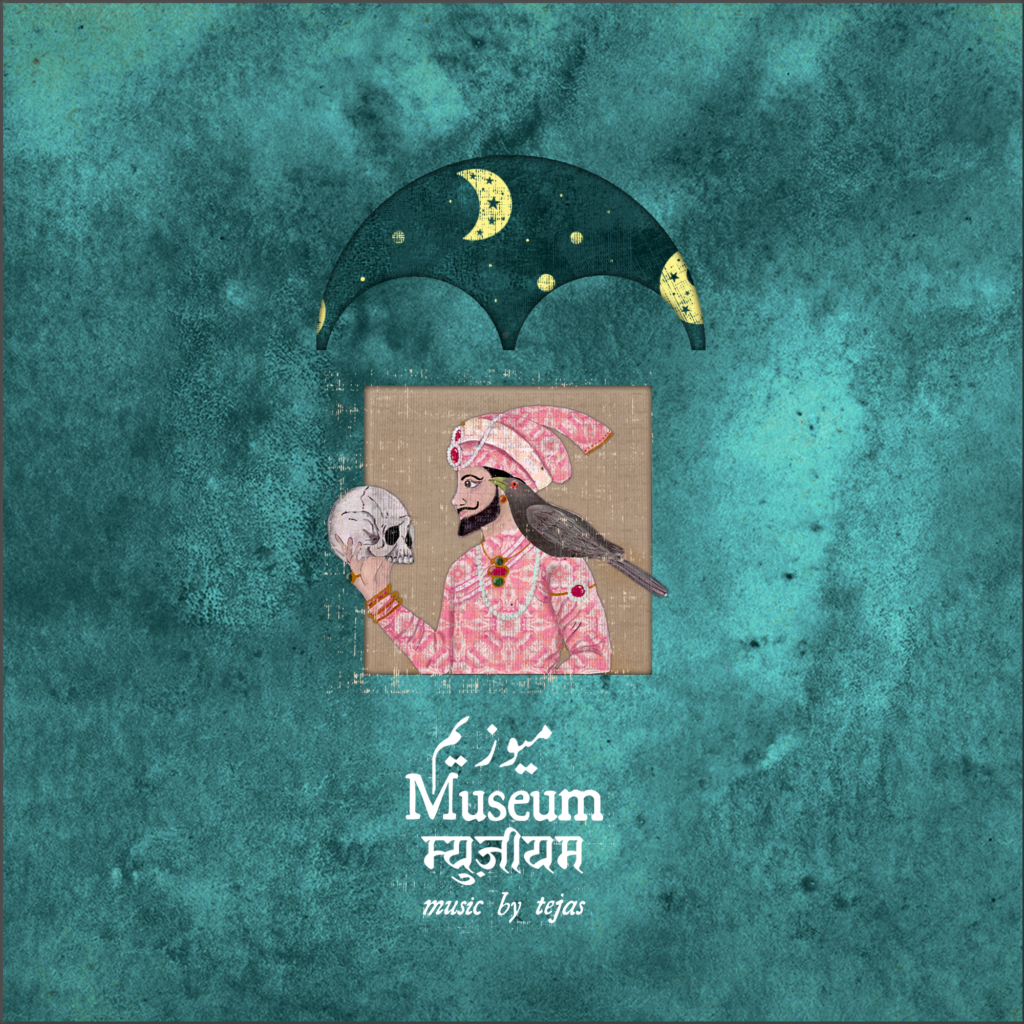
Can you share the inspiration behind your latest EP Museum and how it reflects your personal journey and experiences?
The inspiration for this EP is definitely the death of my father with whom I shared a complex relationship. I spent the last few weeks of his life with him, and it brought out many feelings which ultimately shaped a big part of this record.
How did the concept of exploring your past and identity through Museum come about, especially in relation to your father’s passing?
I think the main effect of writing this record in particular, made me realize what my role was as an artist even clearer than it has ever been, and what stories I need to be telling. Whether it’s about my Indian-ness or my heritage, or telling the stories that only I can share because of my experiences living outside India.
What was your songwriting process like for Museum, particularly when delving into such personal and introspective themes?
I think I really wanted to explore my Indian side a lot more. Everyone knows I’ve written and sung in English my whole career and even though I’ve sung in Hindi for commercial work, I don’t think I’d like to sing in a language I can’t write in, for my own work. So I thought it was an interesting idea to tackle these delicate themes with Indian classical instruments that could fuse with my English pop music.
How do you balance experimenting with new sounds and textures while staying true to your signature style of music?
I think it’s hard to rid myself of my own ways of writing, it inevitably finds its way in through the way I write lyrics or the way that I sing or the harmony of the music, but I think using different elements to interpret that style is what’s given this music its new skin. The balance was really in trying to make it contemporary while using those instruments, like the album should sound like it’s from 2024.
What role do collaborations play in your creative process, and are there any artists you’d love to collaborate with in the future?
I’ve always collaborated with my longtime co-producers and bandmates, Adil Kurwa and Jehangir Jehangir to make these albums, but I am looking to venture outside that, not only since I am outside my comfort zone musically, but also to hear different perspectives. Artists I’d love to work with are Chayan Adhikari, Hanumankind, Tajdar Junaid, and Natasha Noorani.
As someone deeply involved in the indie music scene in India, how do you see it evolving and growing in the coming years?
It’s a lot more evolved in sound in the last decade, but it’s sad to see the number of venues reducing. The sonic experience has really expanded but we need more patronage in the form of brands to come in a incubate this or else it just becomes a weird kind of mainstream-adjacent scene. The production of the songs has really improved however, but artists need to find their own sound. It’s a tough quest, for me included.
Can you tell us about your experience working with Indian classical instruments and incorporating them into your music?
I was really lucky to find Aseem Trivedi through Adil who had worked with him, and he really nailed it as this wizened old folk voice I wanted for Museum, and apart from that just a lovely guy, super enthusiastic about the whole process. Vanraj Shastri who played the sarangi was just excellent. He just elevated the entire song ‘The Clock’ by adding his parts, including a few wonderful solo sections. He can be heard on the opening track as well.
And lastly we had the wonderful Shannon Donald on backing vocals on Museum who just jumped on board last moment to really add that depth to the group sections. I was very pleased to have her.
How has your journey as a musician evolved over the years, and what lessons have you learned along the way?
I could like any other artists of my age, expound on this for days. But all they tell you in the beginning is still true for me now. It’s just been about unravelling your identity to yourself. Figuring out your life and who you are and writing about it. So important to live that code of vulnerability and the readiness to accept the not so nice parts of you, on and off stage.
What message would you give to aspiring musicians who are trying to find their own unique sound and style?
I’d say find the story you need to tell, that only you can tell, and then ask yourself what would be the best way to tell that story, that retains the emotion and also tells it in the most thorough and even entertaining way.
What emotion do you hope listeners will take away from Museum after listening to it?
I hope it helps people just understand that death is a part of life and we all have to go through it, but the processing of that and what comes out of it is so much more important. It’s about being honest with yourself, and forgiveness, and redemption.
Rapid Fire:
If Museum were a colour, what would it be and why?
Green. I just always know what colour a song or album is going to be before its made. I always knew this was it. I don’t know why!
What’s your go-to comfort food when you’re in the studio recording?
We’re usually chugging coffee at the studio or when I’m at home producing so that’s definitely the go to, otherwise anything that is easy to hold and eat, like a roll (haha).
If you could time travel to any musical era, which one would you choose?
Probably the 80s, it’s one of my favourite musical eras.
What’s the most unusual instrument you’ve ever experimented with?
Of late I think the bulbul tarang. What a lovely little device with such a unique sound!
If you could perform a duet with any artist, living or dead, who would it be?
I’ve always loved KT Tunstall, and I’m just a lifelong fan, so that would probably send me over the moon.
What’s the one song that never fails to lift your spirits on a bad day?
‘Digital Love’ by Daft Punk. Or of late ‘Calling Your Name’ by Jon Batiste.

